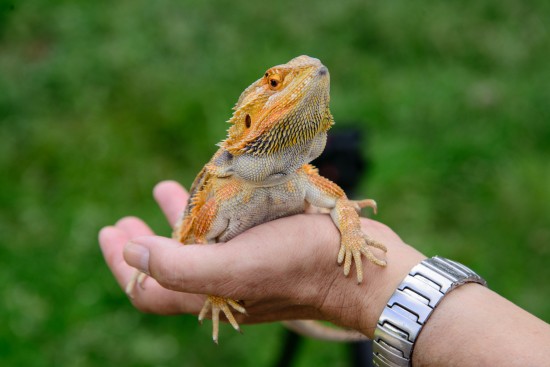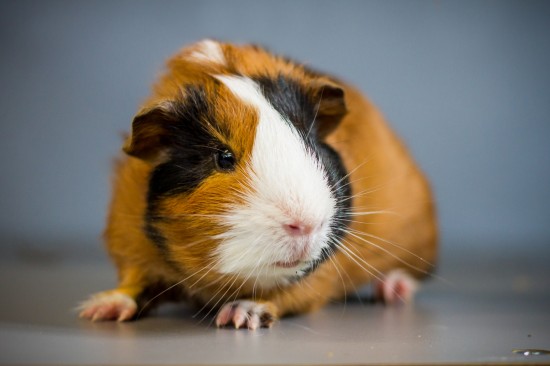Rabbits have been commonly kept as pets in Western nations from the 1800s. Rabbits can adjust well to indoor life, and can even be litter box trained. Like all pets, rabbits need a considerable amount of care and attention.
People often purchase rabbits from a breeder. Such a breeder who has a litter of young rabbits offered for sale can be found in the newspaper classified ads listed under "Pets" or "Livestock." Some can be found through rabbit breeders' club publications or through rabbit-related magazines, which often include a breeder listing. With the advent of the Internet, many breeders promote their stock online.
Finding a local rabbit breeder is generally preferred to shipping rabbits over long distances, as it can be traumatic for the animal. Many pet shops nearly always carry smaller breeds of rabbit such as the Netherland dwarf, the Holland lop, and the Mini-Rex. These breeds, although smaller than 'normal' rabbits, still live long and healthy lives. A point to note is that often smaller breeds of rabbits are prone to tooth problems such as malocclusion.
Rabbit rescue organizations or a local humane society are ever more common places to find adult rabbits, who may already be spayed or neutered and docile from handling. Though most rescued rabbits are in good physical shape, some may well require special care for health conditions or behavioral issues resulting from prior mistreatment.
Training and Play
Pet rabbits can be taught to urinate and defecate in a litter box or on a newspaper in a specific corner of a room. The litter box may also be placed inside the rabbit's cage or the rabbit can be trained to treat the cage itself as the litter box. Litter training becomes much easier once a rabbit is spayed or neutered.
Rabbits cannot be taught voice commands like a dog, but can recognize different patterns of the voice. For example, If a rabbit is disobeying, for example biting, simply make a high pitched noise, or an extremely bass noise and the meaning will be conveyed. Rabbits can be taught their names, although they recognize the pattern of the noises more then the words. Rabbits are clever, and enjoy games and toys.
It is possible to permit a rabbit to run loose in the home if rooms have been rabbit-proofed (i.e. hazardous chewable items such as electric cords are removed from the pet's reach). Rabbits have a tendency to chew on items in their space, particularly wires, although they can be taught not to chew.
It is imperative that if a rabbit is permitted to roam in a house that it be impossible for the rabbit to chew or get into hazardous or valuable items. They do not possess the same comprehension as a dog or a cat, and often don't understand if punished physically; rather they will become frightened or perplexed if some kind of chastisement is used, as they do not see the damage they have done. If all this is taken into consideration, rabbits make excellent house pets.
Companionship
Other rabbits
Unneutered rabbits frequently fight when paired with a further rabbit of the same gender. Generally fighting is a result of sexual mounting, which is engaged in by rabbits of both sexes upon other rabbits of either sex; this behavior stresses the rabbit being mounted and can make it aggressive toward its cagemate. Unneutered rabbits of opposite sexes will breed quickly, so a pet owner shouldn't leave them together, even if they do not fight.
Because of these problems, it used to be preferred to keep rabbits caged individually.
Nonetheless, it is becoming common to spay and neuter pet rabbits allowing male and female rabbits to live together. Fighting can result even from pairing altered rabbits. Keeping rabbits in pairs can curb behavioral issues (such as general aggression, biting or withdrawal) which may occur if rabbits are kept single.
Pairs of bonded and desexed rabbits, usually one of each gender to a pair, can often be adopted from animal shelters. These have usually already had all their major expenses taken care of (desexing) and they will rarely fight or harass each other, taking the trouble out of bonding two separate rabbits.
Guinea pigs
A number of books commend keeping rabbits and guinea pigs together to meet their social needs. While some people have witnessed success with this technique, the current consensus is that rabbits should never be kept in the same cage with guinea pigs. A rabbit can easily pester or harm a guinea pig; this can lead to serious distress or even death for the guinea pig. It may be unintentional or due to being startled, since the rabbit is larger and stronger so can gravely injure a guinea pig.
They also have differing dietary needs, so it is therefore preferable that rabbits and guinea pigs are fed separately. Guinea pigs require additional Vitamin C in their diets that rabbits don't and a lack of Vitamin C may lead to scurvy.
In addition, guinea pigs typically display very little interest in social activities necessary for the rabbit's well-being, such as grooming; this limits the intended benefit of housing the guinea pig and rabbit together in the first place.
Dogs and cats
It is usually recommended that dogs must never be left alone with rabbits as their predatory instincts (or zealous play) could lead to the dog attacking the rabbit without warning. Cats, on the other hand, can become close and safe potential companions if correctly introduced to the rabbit and they are of at least roughly corresponding size. In fact, when the cat is introduced in a home with a resident rabbit, the rabbit sometimes will act aggressively to establish his territory and the cat, which does not have such concerns, will typically yield the point to the resident.

 Some Important And Yet Commonly Overlooked Aspects Of Small Dog Care
Some Important An
Some Important And Yet Commonly Overlooked Aspects Of Small Dog Care
Some Important An
 10 Great Reasons Why Reptiles Make Good Pets
10 Great Reasons
10 Great Reasons Why Reptiles Make Good Pets
10 Great Reasons
 How To Keep A Healthy, Happy Guinea Pig
How To Keep A Hea
How To Keep A Healthy, Happy Guinea Pig
How To Keep A Hea
 Where To Take Your Puppy Or Young Dog To Socialise Them
Where To Take You
Where To Take Your Puppy Or Young Dog To Socialise Them
Where To Take You
 Helpful Tips And Advice About Adopting A Rescue Dog
Helpful Tips And
Helpful Tips And Advice About Adopting A Rescue Dog
Helpful Tips And